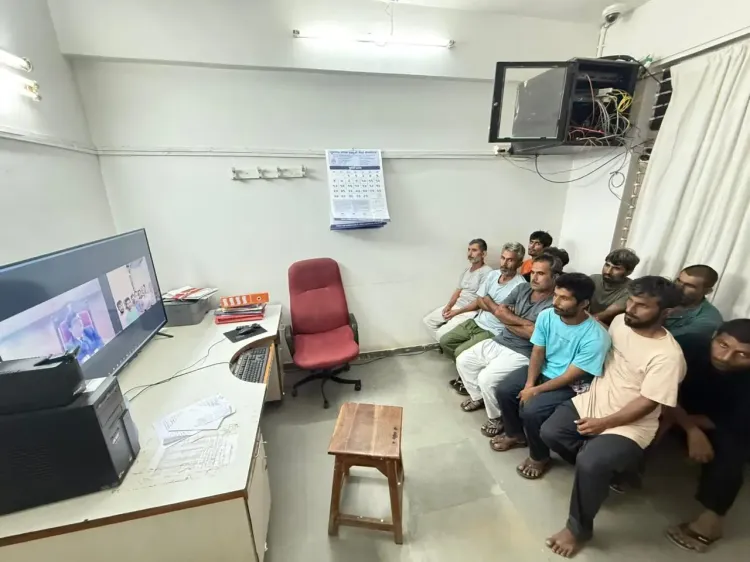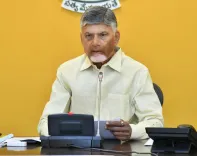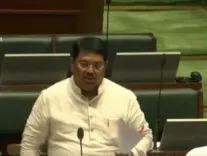Has Gujarat Approved Eco-Friendly Tehsil Panchayat Offices in 11 Districts?

Synopsis
Key Takeaways
- Gujarat's Chief Minister Bhupendra Patel has approved the construction of eco-friendly Tehsil Panchayat offices.
- The new offices will feature solar rooftop systems and rainwater harvesting structures.
- A budget of Rs 12.45 crore has been allocated for this project.
- These offices aim to enhance local governance and public service delivery.
- Gujarat's initiative aligns with the Centre’s 'Catch the Rain' campaign.
Gandhinagar, July 17 (NationPress) Gujarat's Chief Minister Bhupendra Patel has given the green light for the establishment of eco-friendly Tehsil Panchayat offices in 11 tehsils throughout the state. This initiative aims to enhance local governance infrastructure with a strong emphasis on sustainability and community convenience.
The upcoming offices will be equipped with solar rooftop panels and rainwater harvesting systems, in line with the Centre’s 'Catch the Rain' initiative and the state’s objectives for green energy. The new constructions will be located in tehsils across Dang, Ahmedabad, Kheda, Chhota Udepur, Patan, Banaskantha, Bhavnagar, Amreli, Gir Somnath, Mahisagar, and Rajkot districts, with a total budget allocation of Rs 12.45 crore.
Moreover, an additional Rs 20.55 crore has been designated for the ongoing development of panchayat offices in six other tehsils, which include Lathi, Kunkavav, Veraval, Deesa, Mahuva, and Gandhinagar.
Currently, Gujarat boasts a total of 211 tehsil panchayat offices. Out of these, 104 have already implemented solar rooftop systems, with installations in progress for another 27 offices. Furthermore, rainwater harvesting systems are currently operational in 31 offices.
The state budget for 2025–26 has allocated Rs 65 crore for the modernization and expansion of tehsil and district panchayat infrastructure.
The Panchayat and Rural Development Department has released formal guidelines for these new constructions, emphasizing compliance with safety standards and the regulations set by the Gujarat State Disaster Management Authority (GSDMA).
This initiative is anticipated to enhance administrative efficiency, lower electricity expenses, and improve public service delivery at the grassroots level.
In Gujarat, tehsil panchayats play a pivotal role as administrative units within the three-tier Panchayati Raj structure, functioning between the village (gram) and district (zilla) levels.
They are tasked with executing rural development initiatives, managing local infrastructure such as roads, water supply, and sanitation, overseeing health and educational services in rural areas, and coordinating various welfare programs.
Additionally, these bodies facilitate the resolution of public grievances and ensure that government benefits reach the grassroots level. Their role is essential in fortifying decentralized governance and enhancing the delivery of vital services in both rural and semi-rural regions of Gujarat.





